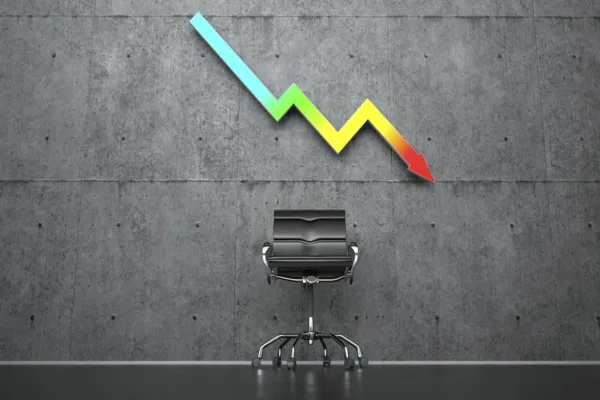There’s been a lot of talk about Urjit Patel, the Reserve Bank of India’s new governor. But Patel, who officially took his post on September 4, hasn’t said much of anything, never giving a policy speech in three years as a deputy governor at the central bank. In that way he couldn’t be more different from his predecessor, the outspoken Raghuram Rajan. Don’t mistake Patel’s silence for complacency, though.
“He’s understated, thoughtful, but can be very forceful,” says Willem Buiter, global chief economist at Citigroup in New York, who advised Patel on his doctoral studies as an economics professor at Yale University during the 1980s. “He can’t be pushed around.”
The self-effacing Patel, 52, represents continuity on the monetary policy front. As a deputy under Rajan, he led the design of an inflation-targeting policy framework that will remodel the RBI along the lines of the Federal Reserve, the Bank of England and other leading central banks. The government of Prime Minister Narendra Modi has set an inflation target of 4 percent, plus or minus two percentage points, which will now become the bank’s main objective. It also named three outside economists to sit on a new monetary policy committee alongside Patel, his deputy governor for monetary policy and another RBI executive. The committee is anticipated to hold its first rate-setting meeting in October.
Under the old regime the governor alone set rates, and Rajan boosted them sharply in 2013 and 2014 to stem a currency crisis and combat inflation. As inflation receded, he trimmed the central bank’s policy rate by 150 basis points since January 2015, to 6.5 percent. Inflation fell to 5.05 percent in August from 6.07 percent the previous month.
Analysts expect Patel to be every bit as hawkish on inflation as his former boss but less likely to shoot from the lip. Rajan’s rock star status, his criticism of some of the government’s economic policies and his clashes with Hindu nationalists that support Modi had ruffled feathers in New Delhi. With doubts swirling in markets about whether the government would offer him a second term, Rajan abruptly announced in June that he would leave. He stepped down in early September to go back to teaching finance at the University of Chicago’s Booth School of Business but made it clear he has faith in Patel. “I am confident that Dr. Urjit Patel, who has worked closely with me on monetary policy for the last three years, will ably guide the monetary policy committee going forward in achieving our inflation objectives,” he said in one of his last speeches as governor.
India is the world’s fastest-growing major economy, projected to expand by 7.4 percent this year, according to the International Monetary Fund. That’s partly thanks to the actions of the central bank as well as reforms ushered in by Modi, and economists believe the recent parliamentary approval of a goods and services tax, the government’s biggest change yet, will maintain the momentum. A central banker’s personality can influence markets; Modi’s choice of Patel to replace Rajan sets a more subdued tone as India keeps growing.
Patel, a native of Kenya, brings broad experience to the RBI. In 1990, after earning a master’s degree and a Ph.D. in economics from the University of Oxford and Yale, respectively, he joined the IMF in Washington. During his five years with the Fund, he served in its economist program on the U.S., India, Bahamas and Myanmar desks before becoming deputy resident representative in India. He then took a temporary assignment at the RBI to advise on issues such as banking sector and pension fund reforms, debt market development and expansion of the foreign exchange market.
Two years later Patel moved into the business world. From 1997 to 2006 he was executive director and a management committee member at the Infrastructure Development Finance Co., a financial services firm headquartered in Chennai on the southeast coast of the subcontinent. Before joining the RBI as deputy governor in 2013, he was president of business development at Mumbai-based Reliance Industries, India’s second-largest company.
Citi’s Buiter, who has written half a dozen academic papers with Patel during their 30-year friendship, believes the new RBI governor is eminently qualified for the job. “His knowledge of all of the conceivably relevant economics — microeconomics, macroeconomics, fiscal issues, exchange rates, financial regulation, financial stability — is above par certainly among central bank economists, but also among economists generally,” Buiter tells Institutional Investor.
What does Patel have to say for himself? In what could be his only public speech as a central banker, he mustered a few words. Early last year at a Mumbai awards ceremony recognizing the talent of India’s business school students, Patel emphasized the value of entrepreneurship and the need to make it easier for companies to do business in India. He also praised Prime Minister Modi’s Make in India strategy, which aims to transform the country into a global manufacturing center. “The hard-earned macroeconomic stability provides an important backdrop for optimal decisions by all stakeholders,” Patel said. “We have to preserve this.”





